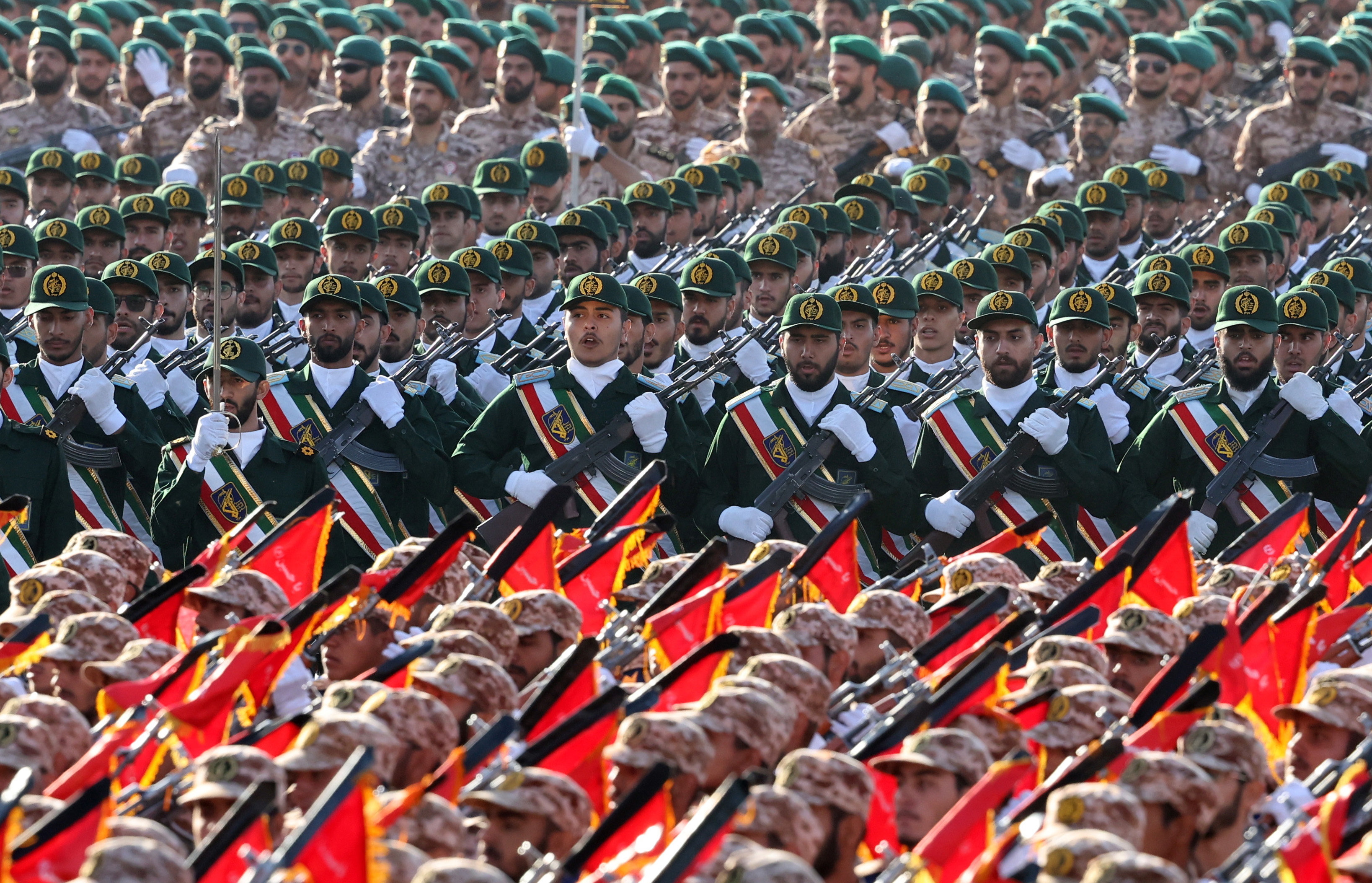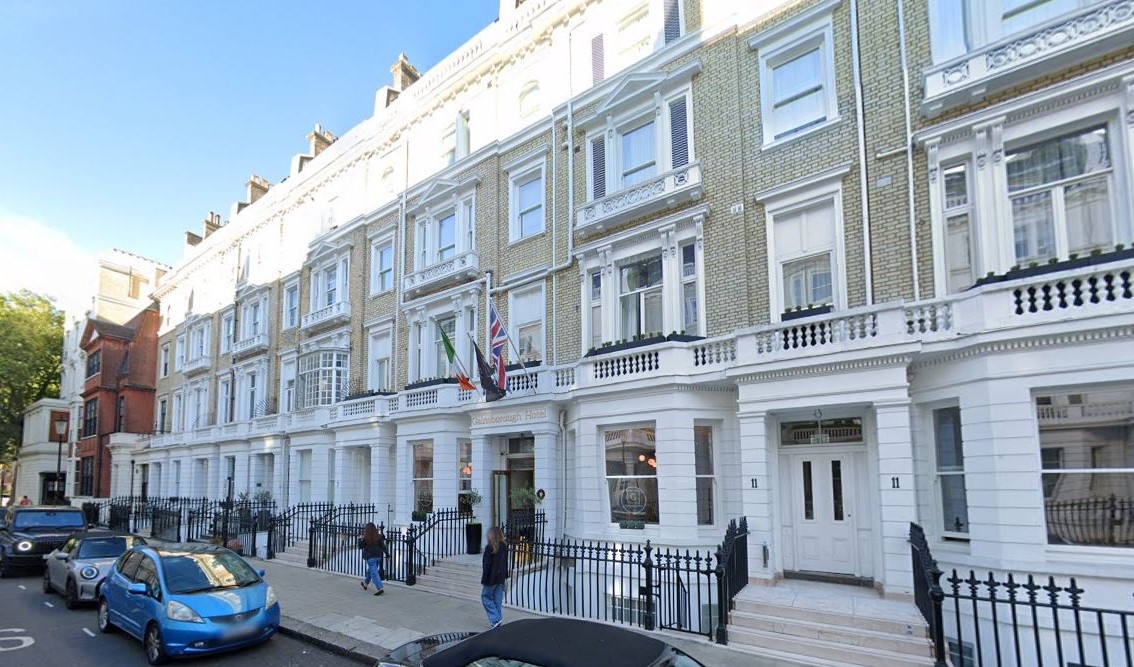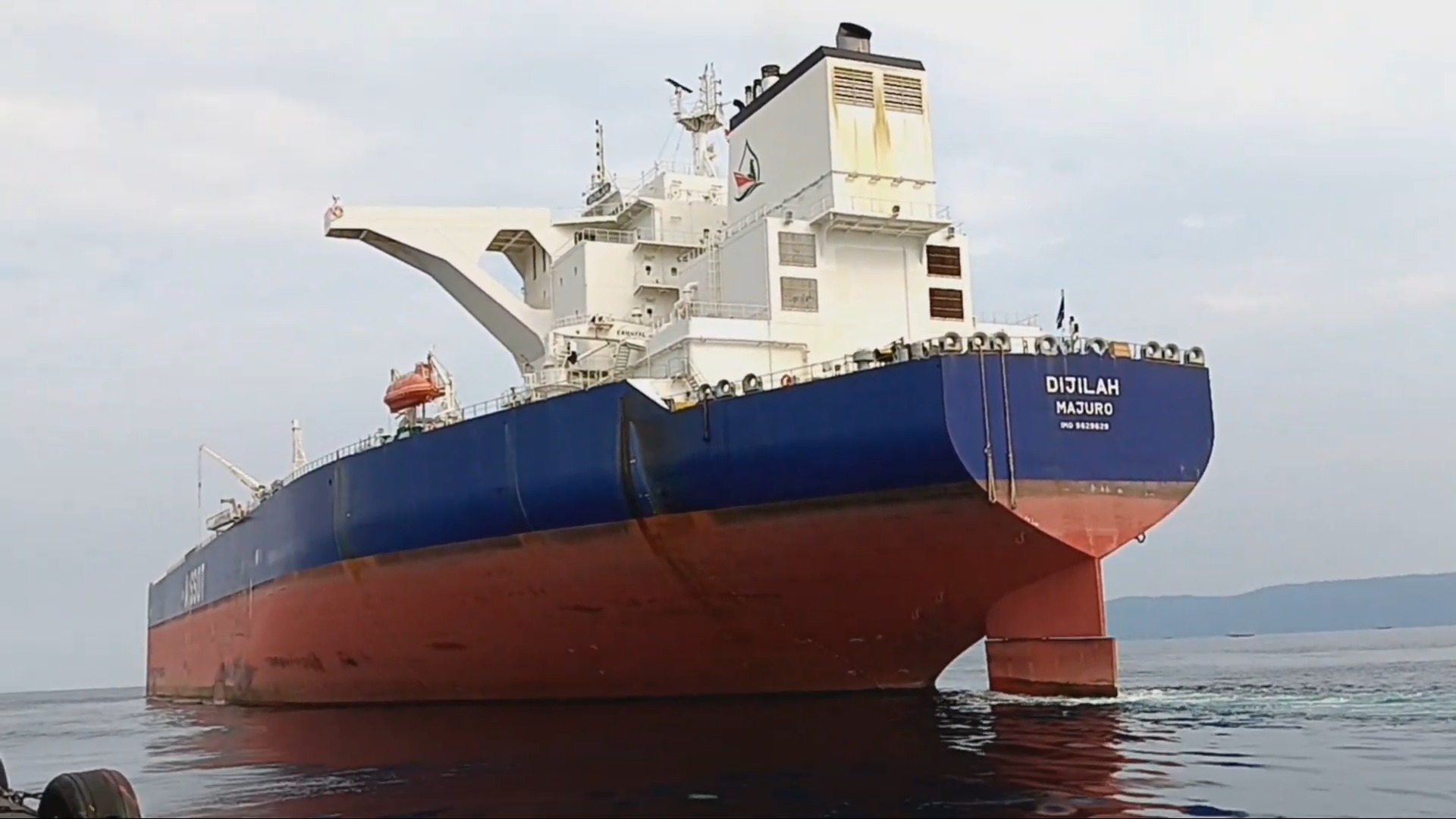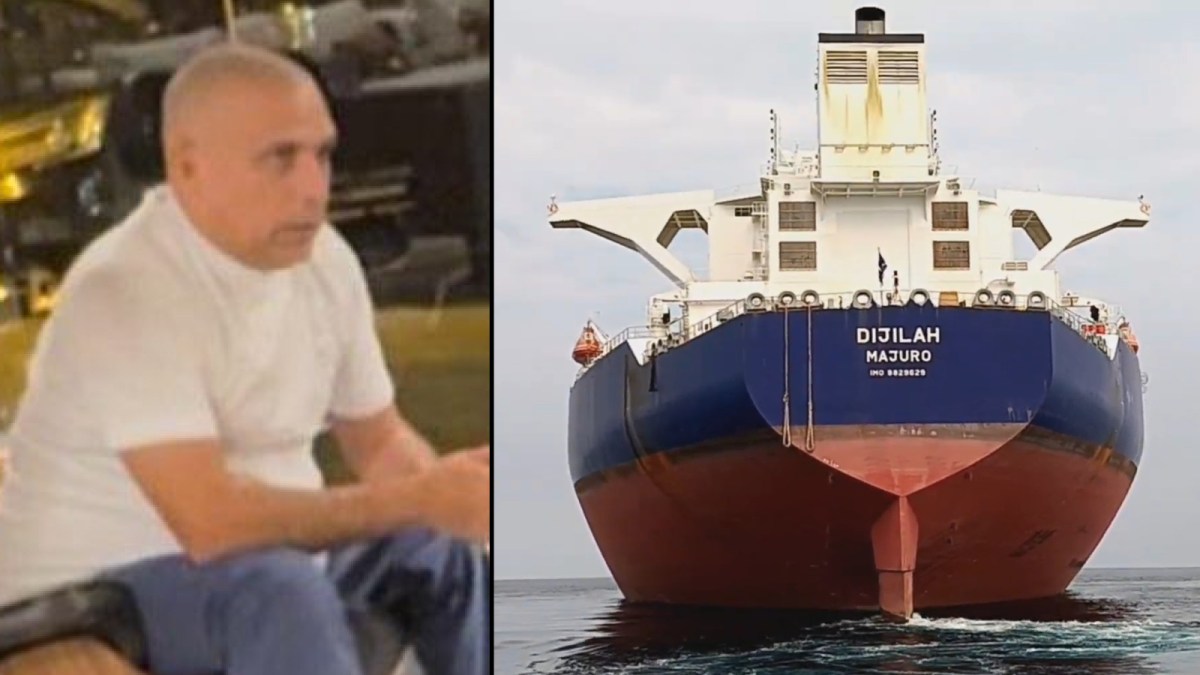A businessman granted asylum in Britain is at the centre of a billion-dollar oil smuggling operation that is helping to finance Iran’s overseas terrorism and domestic repression, according to US officials.
Salim Ahmed Said has been accused by the Trump administration of running a network of companies illicitly trading in Iranian oil by passing it off as a product of neighbouring Iraq.
Profits from the sophisticated smuggling operation are alleged to have been sent to Iran in trucks full of cash, which is used to bankroll the activities of an elite wing of the Islamic Revolutionary Guard Corps (IRGC).
A Sunday Times investigation has discovered that Said, 47, an Iraqi Kurd, was given British citizenship after fleeing Saddam Hussein’s regime and successfully claiming refuge in the UK in the early 2000s.
The businessman owns a £27 million hotel in Kensington, west London, and operates two British companies which are blacklisted by the US Treasury’s Office of Foreign Assets Control (Ofac).
Said was placed under US sanctions this month, alongside a string of commercial entities he is said to control.
However, UK authorities do not appear to have taken any action against the businessman, a dual British-Iraqi citizen listed as possessing two British passports.
US Treasury documents state: “Salim Ahmed Said runs a network of companies that have been selling Iranian oil falsely declared as Iraqi oil since at least 2020.
“Said’s companies use ship-to-ship transfers and other obfuscation techniques to hide their activities. Said’s companies and vessels blend Iranian oil with Iraqi oil, which is then sold to Western buyers, via Iraq or the United Arab Emirates (UAE), as purely Iraqi oil using forged documentation to avoid sanctions.”
Said is alleged to have bribed officials and MPs in Iraq with “millions of dollars in kickbacks” to help facilitate his lucrative racket.
“This allows the oil to be sold on the legitimate market and helps Iran evade international sanctions on its oil exports,” the US Treasury adds.
When announcing sanctions against Said on July 3, the US government said it was “taking action against networks that have collectively transported and purchased billions of dollars worth of Iranian oil, some of which has benefited Iran’s IRGC Quds Force, a designated foreign terrorist organisation”.

Profits from the smuggling operation are alleged to have benefited an elite wing of the IRGC
ABEDIN TAHERKENAREH/EPA
The Quds Force is responsible for Tehran’s external operations, including suspected kidnap and assassination plots in the US, Britain and the rest of Europe.
Asylum in London
Said is believed to come from Ranya, a Kurdish town close to Iraq’s border with Iran, which is now a key hub for people-smuggling gangs who help migrants cross the English Channel in small boats.
According to one former business associate, Said made the journey to Britain himself in about 2002, claiming that he was fleeing the widespread persecution of Kurds by Saddam, the former Iraqi dictator who was overthrown the following year.
“He claimed asylum and was later given a British passport,” said the associate, who did not want to be named.
Little is known about Said’s early years in the UK, but he is thought to have initially settled in Hounslow, southwest London.
His first business venture came in 2011 when he invested in an eastern European food store, Rhine, in Leicester on Granby Street, a busy thoroughfare close to the railway station. The shop lasted three years, according to filings at Companies House.
Around 2014, Said, who is also known as Omed Haji Ahmed, moved from London to Dubai to try his luck in the oil trade. He now resides for part of the year in a luxurious villa on Palm Jumeirah, an archipelago of artificial islands home to the world’s super-rich.
He maintains a presence in Britain with the purchase of the four-star Gainsborough Hotel in south Kensington in 2018. The property, which is owned via two companies, Robinbest Ltd and The Willett Hotel Ltd, sits across five Victorian townhouses that have been knocked together, close to the Natural History Museum.

The Gainsborough Hotel in south Kensington
Named after Thomas Gainsborough, the 18th-century painter, the hotel’s website boasts: “The Gainsborough feels like an English country home in London.”
‘Smuggling for Tehran’
Said’s alleged oil smuggling activities have been running for at least five years, according to the US authorities.
He is accused of breaching a long-standing American ban on the export of Iranian oil by using a private fleet of tankers and an oil terminal in Iraq.
The smuggling operation is said to have initially involved oil being taken by ship from Iran’s main crude terminal at Kharg Island, before being transferred to a second vessel in the Persian Gulf and blended with Iraqi oil to mask its true origins.
More recently, shipments of Iranian oil have been taken to the Khor al-Zubair terminal near Basra in Iraq to be blended and disguised before being distributed to customers abroad, documents allege.
Many of the consignments are said to have ended up in countries in Asia, such as China and India. However, Britain also imports oil from Iraq, so it could have unwittingly received an illicit Iranian cargo.
The US Treasury alleges Said controls a UAE-based shipping firm called VS Tankers, “despite avoiding a formal association with the company”.
Sanctions documents state: “VS Tankers currently claims several oil tankers as part of its fleet, one of which recorded four ship-to-ship transfers with the US-sanctioned, Barbados-flagged Casinova in April 2024.”
The other vessel allegedly involved in these illicit transfers was the Dijilah, a tanker registered in the Marshall Islands, in the Pacific.

The documents claim Said runs another UAE-based company called Rhine Shipping (possibly named after his Leicester food store) that was “previously exposed as the manager of the US-sanctioned oil tanker Molecule, which loaded oil in the Persian Gulf from an Iranian tanker that had turned off its location transponder to obfuscate the transaction”.
• Iran’s economy is collapsing — surrender may be the only solution
The US Treasury adds: “In 2023, Said expanded his business holdings to include VS Oil Terminal, which, though registered in the UAE, has its physical presence in Khor al-Zubair, Iraq.
“VS Oil manages six storage tanks where Iranian oil is dropped off to be mixed with Iraqi oil … The blended oil is ultimately authenticated by complicit Iraqi government officials.
“VS Oil employees smuggle hard currency into [neighbouring] Iran via cars and trucks — some of which carry millions of dollars each — as payment for oil.”
Accountants in Stratford
Announcing sanctions against Said and his companies this month, the US State Department said it was acting “to stem the flow of revenue the Iranian regime uses to support terrorism abroad and oppress its own people”.
British police and MI5 have foiled more than 20 plots to kidnap or assassinate opponents of the Tehran regime in the UK since the start of 2022. They include several attempts to harm journalists at Iran International, an independent Farsi-language broadcaster with offices in London.
The Sunday Times made multiple attempts to seek comment from Said.
When they were sanctioned by the US Treasury on July 3, his two British companies, Robinbest Ltd and The Willett Hotel Ltd, listed the address of an accountancy firm in Stratford, east London, as their registered office.
An employee at the firm said it was aware of the sanctions and had told Said that it was “withdrawing its services”. However, the firm refused to provide any contact details for the businessman.
A separate “correspondence address” that Said had provided to Companies House turned out to be a hotel close to Hyde Park. Staff claimed they had no knowledge of him.
By July 9, the registered address of Said’s two companies had changed to 7-11 Queensberry Place in south Kensington, where the Gainsborough Hotel is located. Staff said they were not aware of Said and claimed not to know who the property belongs to.
Filings at Companies House reveal it is owned by Robinbest Ltd, which, in turn, is owned by The Willett Hotel Ltd. Said is listed as the latter entity’s “person with significant control”.
Both companies value their fixed assets at £27 million, the approximate price of the Gainsborough when it was put up for sale in 2018.
The Foreign Office, which is responsible for sanctioning individuals in the UK, and the National Crime Agency, which enforces sanctions, both declined to comment when asked about Said.
A Whitehall source said: “We do not comment on potential future sanctions designations as to do so may undermine their impact.”
Additional reporting by Emanuele Midolo
